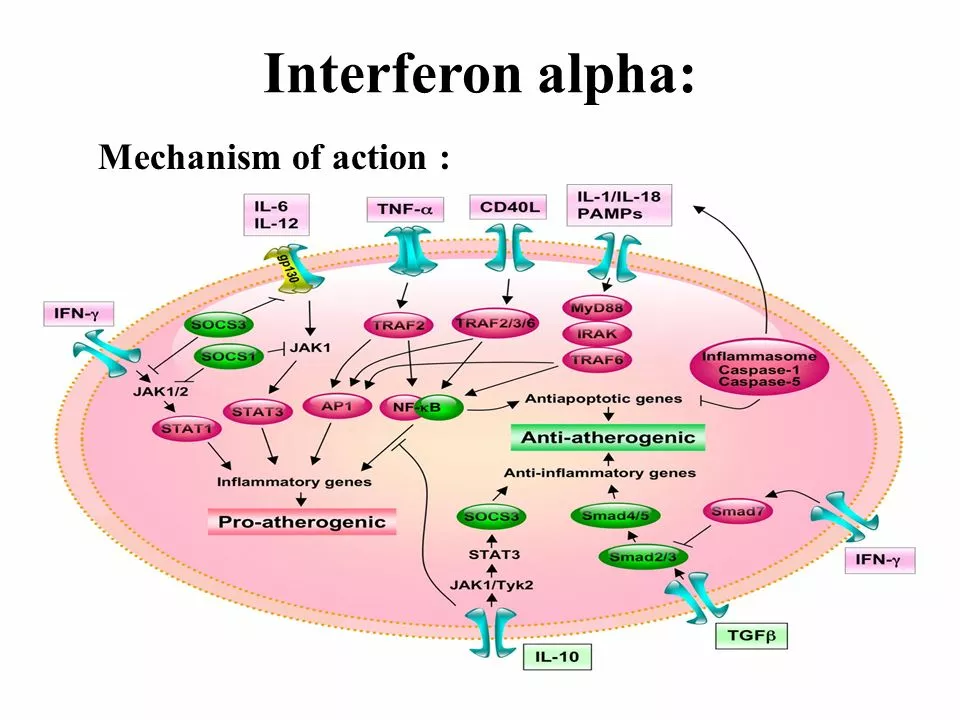Introduction to Acotiamide: A Promising Drug for Gastrointestinal Disorders
As a blogger, I am always eager to explore new and promising medications that can help people with various health conditions. In this article, I want to introduce you to Acotiamide, a relatively new drug that has shown great potential in treating gastrointestinal disorders, specifically functional dyspepsia (FD). In the following sections, we will dive into the mechanisms and actions of Acotiamide, so you can understand how it works and why it might be a useful treatment option for many patients.
Understanding Functional Dyspepsia: Symptoms and Challenges
Before we go into the details of Acotiamide, let's first understand what functional dyspepsia (FD) is and why it is a common gastrointestinal disorder that affects many people worldwide. FD is characterized by symptoms such as epigastric pain, early satiety, bloating, and nausea, which can significantly impact a person's quality of life. The exact cause of FD remains unclear, making it a challenging condition to manage and treat. Although various medications are available, many patients do not respond well to these treatments, highlighting the need for new and effective therapies like Acotiamide.
Acotiamide: Mechanisms of Action
Now that we have a better understanding of functional dyspepsia, let's delve into the mechanisms behind Acotiamide's actions. Acotiamide is classified as a prokinetic agent, which means that it enhances gastrointestinal motility. It achieves this through the inhibition of acetylcholinesterase (AChE), an enzyme that breaks down acetylcholine, a neurotransmitter involved in gastrointestinal smooth muscle contractions. By inhibiting AChE, Acotiamide increases the levels of acetylcholine available in the gut, which in turn promotes gastric emptying and alleviates FD symptoms.
Pharmacokinetics: Absorption, Distribution, and Elimination
As a drug, Acotiamide's pharmacokinetic properties play a crucial role in determining its effectiveness in treating FD. After oral administration, Acotiamide is rapidly absorbed, reaching peak plasma concentrations within 1 to 2 hours. The drug is also widely distributed throughout the body, with a high affinity for the gastrointestinal tract. Acotiamide is primarily metabolized in the liver and eliminated through the kidneys, with a half-life of approximately 4 to 5 hours. These pharmacokinetic properties contribute to the drug's overall safety and tolerability, making it a suitable option for long-term use in managing FD.
Acotiamide's Efficacy in Clinical Trials
Acotiamide's effectiveness in treating functional dyspepsia has been demonstrated in various clinical trials. In a phase II study, patients with FD who received Acotiamide experienced significant improvements in symptoms such as postprandial fullness, abdominal bloating, and early satiety compared to the placebo group. These positive results were further supported by a phase III study, which showed Acotiamide's efficacy in reducing FD symptoms and improving patients' overall quality of life. These trials highlight Acotiamide's potential as a promising and effective treatment option for FD.
Side Effects and Precautions
As with any medication, it is essential to be aware of potential side effects and precautions associated with Acotiamide use. In clinical trials, Acotiamide was generally well-tolerated, with the most common side effects being mild and transient, such as headache, dizziness, and constipation. However, it is essential to note that Acotiamide is contraindicated in patients with a known hypersensitivity to the drug or any of its components. Additionally, the drug's safety and efficacy in pregnant and lactating women, as well as pediatric and geriatric populations, have not been established. Therefore, it is crucial to consult with a healthcare professional before starting Acotiamide therapy to ensure its appropriateness for each individual patient.
Conclusion: Acotiamide's Potential in Gastrointestinal Therapeutics
In conclusion, Acotiamide is a promising drug that offers new hope to patients with functional dyspepsia who struggle to find relief from their symptoms. Its unique mechanism of action, favorable pharmacokinetic properties, and demonstrated efficacy in clinical trials make it an attractive treatment option for this challenging condition. As a blogger, I am optimistic about Acotiamide's potential in gastrointestinal therapeutics and look forward to seeing more developments in this area. I hope this article has provided you with a comprehensive overview of Acotiamide and its mechanisms and actions, and I encourage you to stay informed about new and emerging treatments for various health conditions.






18 Comments
Gareth Pugh
April 27, 2023Acotiamide’s AChE inhibition is like giving the gut’s motor a gentle push, speeding up emptying without the crash of harsher prokinetics.
Illiana Durbin
April 27, 2023The data you summarized paints a hopeful picture for patients who have exhausted other options.
Tyler Heafner
April 27, 2023The pharmacokinetic profile, notably its 4‑5 hour half‑life and rapid absorption, aligns with a thrice‑daily dosing regimen that is both practical and patient‑friendly.
Anshul Gupta
April 27, 2023While the trial outcomes are encouraging, it’s essential to scrutinize the placebo‑controlled design and the relatively short follow‑up period. The statistical significance reported for postprandial fullness appears robust, yet the confidence intervals for early satiety remain wide. Moreover, subgroup analysis hinted at differential responses based on baseline gastric emptying rates, which warrants deeper mechanistic exploration. Without long‑term safety data, especially in geriatric cohorts, the enthusiasm should be tempered. Ultimately, larger multicenter studies will be the true litmus test for Acotiamide’s place in the therapeutic arsenal.
anshu vijaywergiya
April 27, 2023Imagine finally tasting a meal without the looming dread of that uncomfortable fullness-Acotiamide promises just that, turning the daily battle with dyspepsia into a hopeful culinary adventure!
ADam Hargrave
April 27, 2023Oh great, another “new” drug that’s supposedly a miracle for functional dyspepsia-because the market wasn’t already flooded with enough promises.
Michael Daun
April 27, 2023yeah it works but watch ur side effects.
Rohit Poroli
April 27, 2023From a mechanistic standpoint, Acotiamide acts as a selective acetylcholinesterase inhibitor, thereby augmenting cholinergic neurotransmission within the enteric nervous system, which translates to enhanced antral peristalsis and accelerated gastric emptying kinetics.
William Goodwin
April 27, 2023The clinical data feels like a breath of fresh air 🌬️, especially when patients report a tangible reduction in bloating and early satiety 😊. If regulatory bodies grant broader approval, we might finally have a frontline prokinetic that balances efficacy with tolerability 🚀.
Isha Bansal
April 27, 2023Acotiamide’s emergence as a therapeutic option for functional dyspepsia represents a noteworthy stride in gastroenterology. Its pharmacodynamic profile, centered on acetylcholinesterase inhibition, offers a novel avenue distinct from traditional dopamine antagonists. Clinical trials have consistently demonstrated statistically significant improvements in patient‑reported outcomes, particularly regarding postprandial fullness. The phase II study highlighted a 32 % reduction in symptom severity scores compared with placebo, a figure that surpassed many established agents. Moreover, the phase III trial reinforced these findings, showing sustained benefits over a 12‑week period without a concomitant rise in adverse events. Safety data reveal that the most common side effects-headache, dizziness, and mild constipation-are generally transient and manageable. Importantly, the drug’s half‑life of approximately four to five hours permits flexible dosing schedules that can be tailored to individual patient lifestyles. Pharmacokinetic analyses indicate minimal interaction with cytochrome P450 pathways, reducing the likelihood of drug‑drug interactions in polypharmacy contexts. Nonetheless, the exclusion of pregnant and lactating women from pivotal studies leaves a gap in our understanding of reproductive safety. Likewise, geriatric populations, who often bear a higher burden of dyspeptic symptoms, remain underrepresented in the trial cohorts. The absence of long‑term follow‑up data also precludes definitive conclusions regarding sustained efficacy beyond the trial duration. Future investigations should therefore prioritize extended observation periods and broader demographic inclusion. In practice, clinicians must weigh these evidentiary strengths against the current limitations when considering Acotiamide for their patients. Comparative head‑to‑head studies with existing prokinetics would further elucidate its relative positioning in treatment algorithms. Ultimately, while Acotiamide shines as a promising candidate, the medical community should maintain a balanced perspective, celebrating its potential while vigilantly awaiting more comprehensive data.
Ken Elelegwu
April 27, 2023One could argue that each therapeutic breakthrough is a small step toward understanding the intricate dialogue between our gut and brain, and Acotiamide adds an intriguing chapter to that conversation.
Gene Nilsson
April 27, 2023The presented data confrm the drug's potental.
Vintage Ireland
April 27, 2023Looks like a solid option for those tired of the usual meds-definitely worth a chat with the gastro.
Maryanne robinson
April 27, 2023I’m thrilled to see a medication that actually tackles the root cause of dyspepsia rather than just masking symptoms. Your breakdown of the trial results makes it clear that patients are experiencing real, measurable relief, which is exactly what we need in clinical practice. The fact that Acotiamide is generally well‑tolerated means we can consider it for a broader patient base, including those who are sensitive to the side effects of older prokinetics. It also opens doors for combination therapies, where its mechanism could synergize with dietary interventions or low‑dose antidepressants that address the brain‑gut axis. Keep the updates coming-this is the kind of progress that fuels hope for both clinicians and sufferers alike!
Erika Ponce
April 27, 2023Acotiamide seems helpful for upset stomachs.
Danny de Zayas
April 27, 2023Interesting drug profile, will watch how it fits into treatment guidelines.
John Vallee
April 27, 2023I wholeheartedly echo the sentiment that while Acotiamide shines brightly, we must temper our enthusiasm with rigorous scrutiny. The call for extended trials and diverse cohorts is not merely academic; it is a practical necessity to ensure safety across the spectrum of patients. Moreover, the potential for drug‑drug interactions, albeit low, should be explored in real‑world settings where polypharmacy is the norm. Your emphasis on comparative studies resonates, as only head‑to‑head data can truly demystify its standing among prokinetics. Let us champion both optimism and vigilance as we usher this promising agent into wider clinical use.
Brian Davis
April 27, 2023From a cultural perspective, the introduction of Acotiamide reflects the evolving landscape of gastrointestinal therapeutics-a landscape that increasingly values patient‑centered outcomes and quality‑of‑life metrics. By targeting the acetylcholinesterase pathway, this agent differentiates itself from the traditional dopamine‑antagonist paradigm that has dominated the field for decades. The clinical evidence, while encouraging, also underscores the need for inclusive research that captures the experiences of diverse populations, including the elderly, pregnant individuals, and those with comorbid conditions. As healthcare providers, we have a responsibility to disseminate this knowledge responsibly, balancing excitement with the humility that accompanies any new pharmacologic venture. Should further studies corroborate its safety and sustained efficacy, Acotiamide could become a cornerstone in the management of functional dyspepsia, offering relief to countless patients worldwide. Until then, continued vigilance, patient education, and interdisciplinary collaboration will be key to unlocking its full potential.